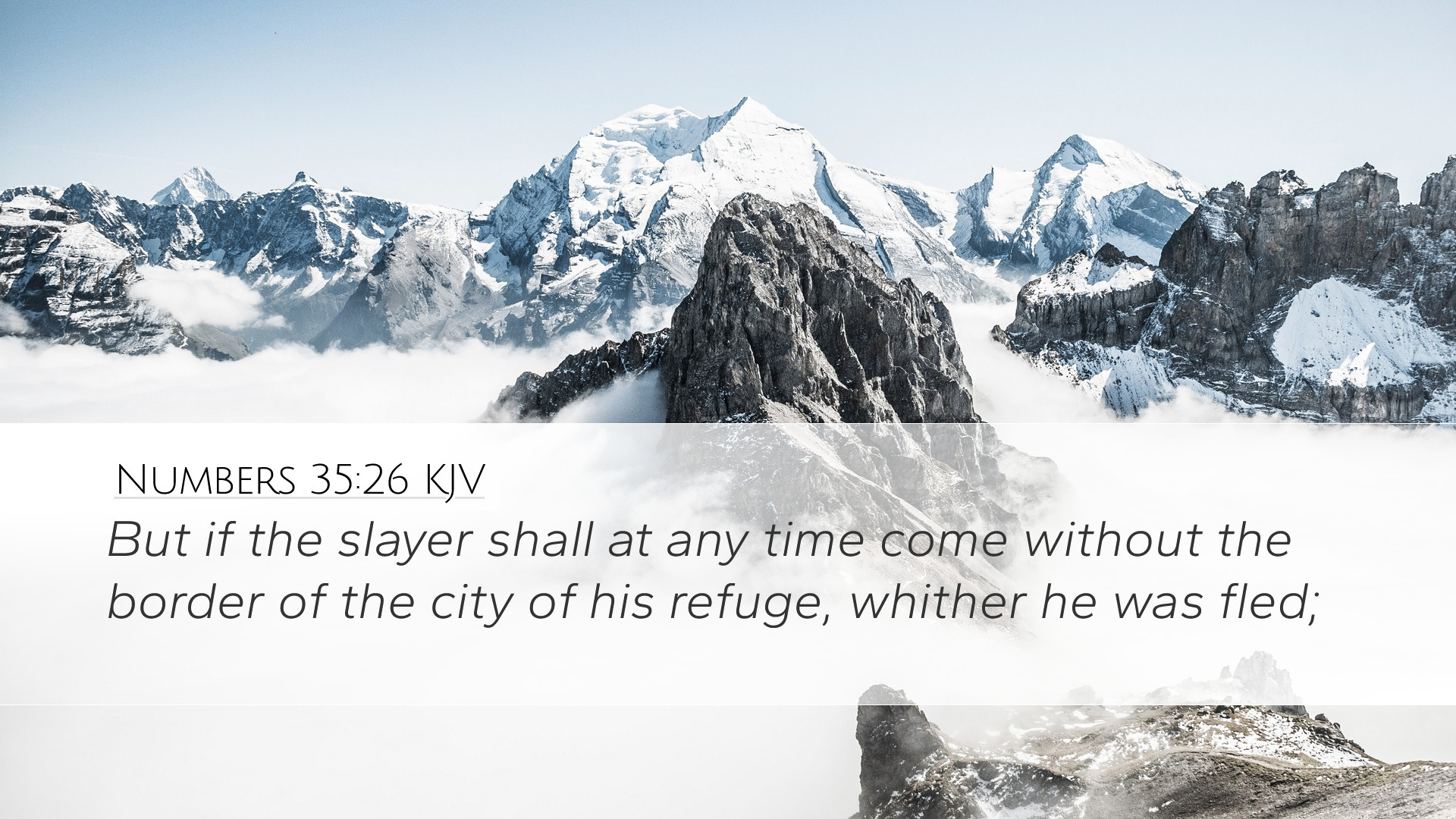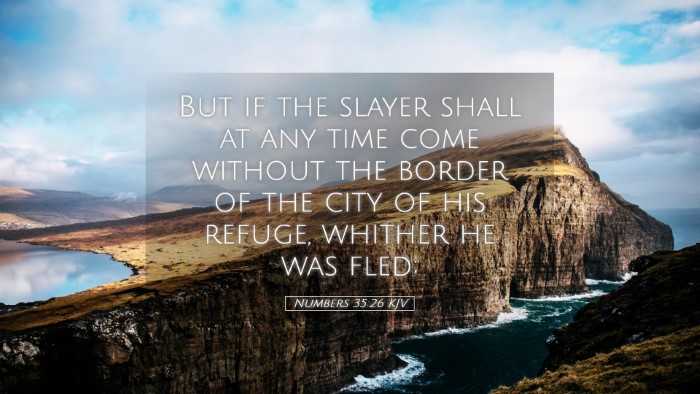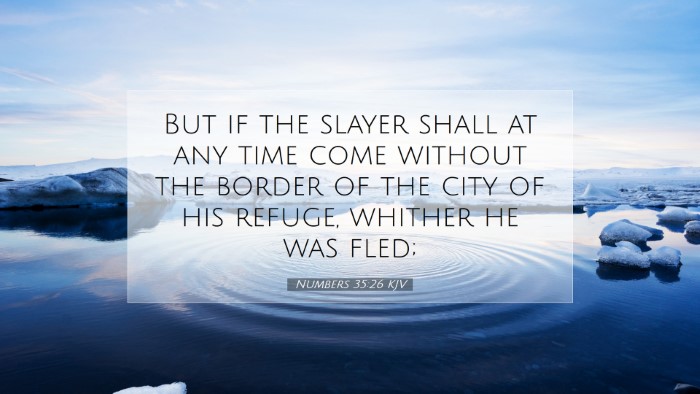Commentary on Numbers 35:26
Verse: "But if the slayer shall at any time come without the border of his city of refuge, whither he was fled; the slayer shall be put to death." (Numbers 35:26, KJV)
Introduction
This verse is a critical element in the legislation surrounding the cities of refuge established for those who inadvertently committed manslaughter. The commandment emphasizes the sanctity of justice and the protective measures surrounding the sanctity of life. This commentary synthesizes insights from renowned public domain scholars, bringing a multifaceted understanding suited for pastors, students, theologians, and scholars alike.
Background Context
The book of Numbers provides a detailed account of the Israelites' journey through the wilderness. Within this narrative, divine instructions are given to ensure justice and mercy among the people. The cities of refuge served as a haven for individuals who unintentionally caused death, preventing blood avengement by the victim's family.
Exegesis of the Text
Commentators such as Matthew Henry highlight the importance of recognizing divine justice. He notes:
- The command reflects God's concern for justice and the proper handling of human life.
- It underscores the necessity of boundaries, both physical and moral, ensuring that the slayer is aware of the conditions of their protection.
Albert Barnes also provides a strong perspective on the implications of leaving the city of refuge:
- He emphasizes that departure from the city signifies a rejection of the provision God has made for mercy and protection.
- Failure to adhere to this stipulation culminates in dire consequences, emphasizing the seriousness of abiding by God's ordinances.
Adam Clarke expands on the idea of cities of refuge, noting:
- The concept illustrates God’s care for people by providing a legal mechanism to distinguish between intentional murder and accidental manslaughter.
- He argues that the levying of punishment reinforces the idea that justice must be served, but it also operates within the framework of God’s mercy for the penitent.
Theological Themes
This verse can be viewed through several theological lenses:
- Justice and Mercy: The dual themes of justice and mercy resonate throughout this passage. God’s law provides for the sanctity of human life while simultaneously offering refuge for those who seek forgiveness and refuge.
- Boundaries and Protection: The emphasis on remaining within the city highlights the idea of spiritual and moral boundaries intended for the protection of individuals.
- Covenant Relationship: The stipulation reflects God’s covenant relationship with His people, where obedience to His commands yields protection and blessing.
Practical Implications
For modern believers, the enduring principles found in this passage bear significant implications:
- It serves as a reminder of the importance of community accountability and the refuge that the church can provide for those seeking restoration.
- The need for clear spiritual boundaries is paramount, where believers must understand the importance of remaining within God’s prescribed limits.
- The narrative reflects God’s heart for justice, urging contemporary adherents to advocate for righteous living and the protection of the vulnerable.
Conclusion
Numbers 35:26 encapsulates the balance between divine justice and mercy. As various commentators illuminate the importance of these themes, it is clear that the implications of this verse extend beyond ancient Israel to contemporary faith communities. Reflecting on God's laws and boundaries, believers are called to pursue justice while upholding mercy, recognizing that true refuge is found in a relationship with God.


